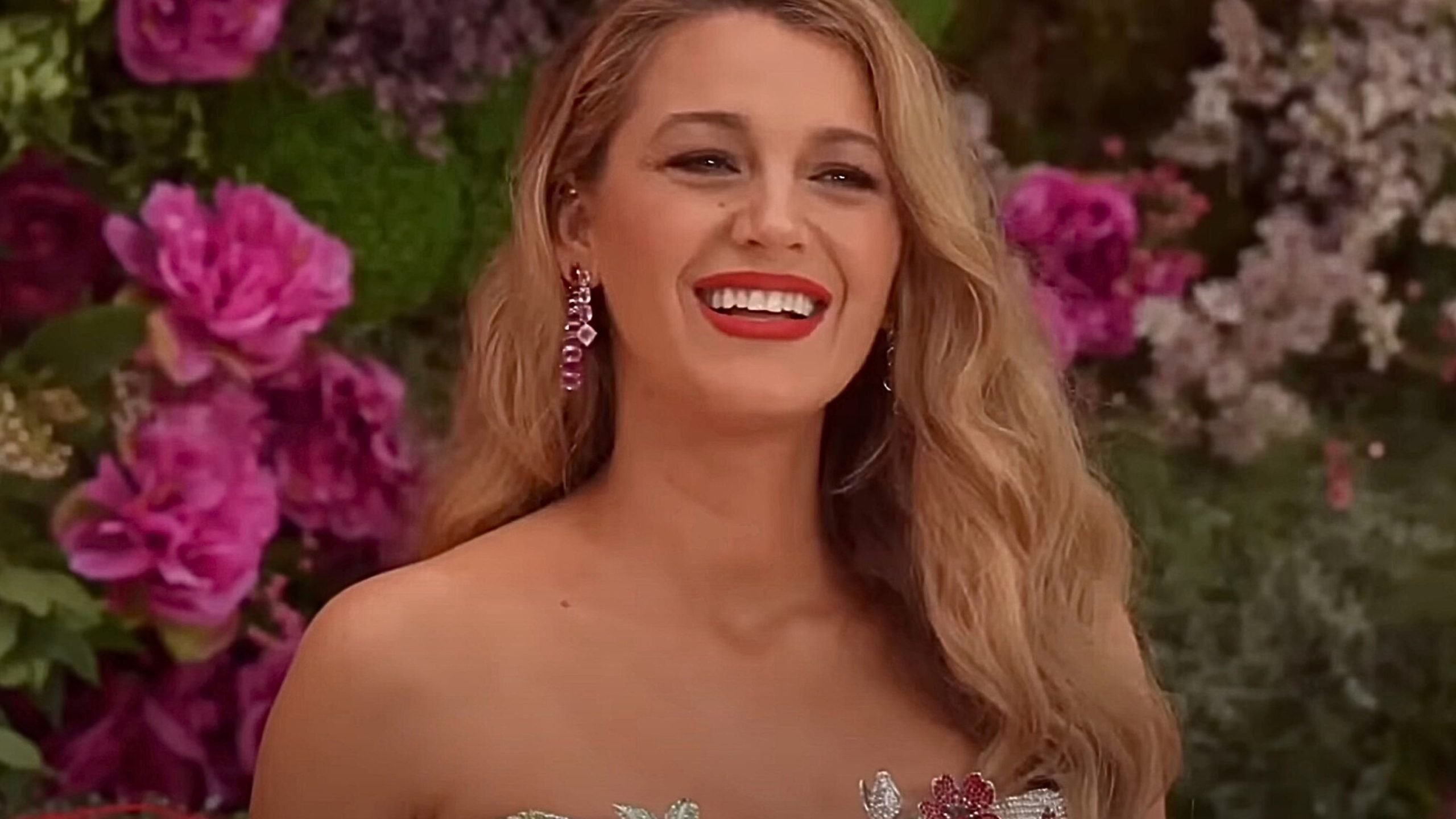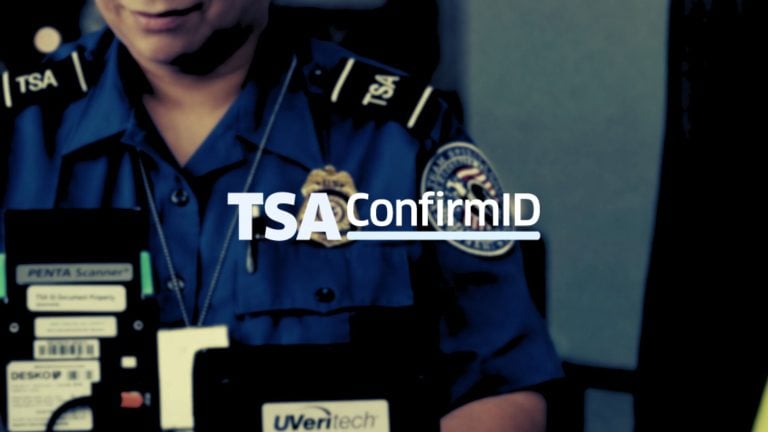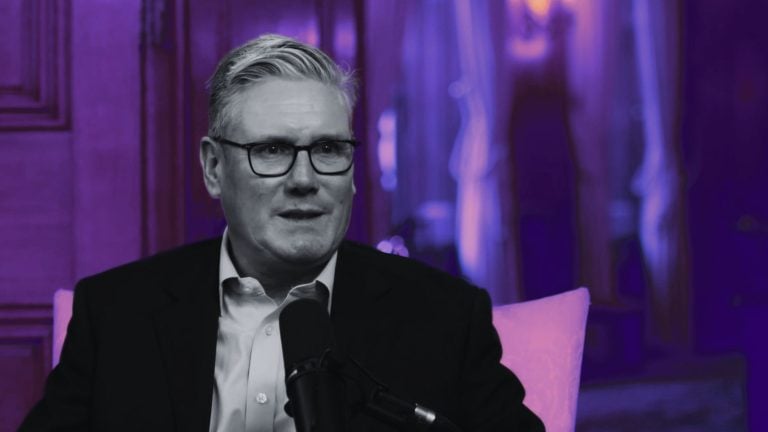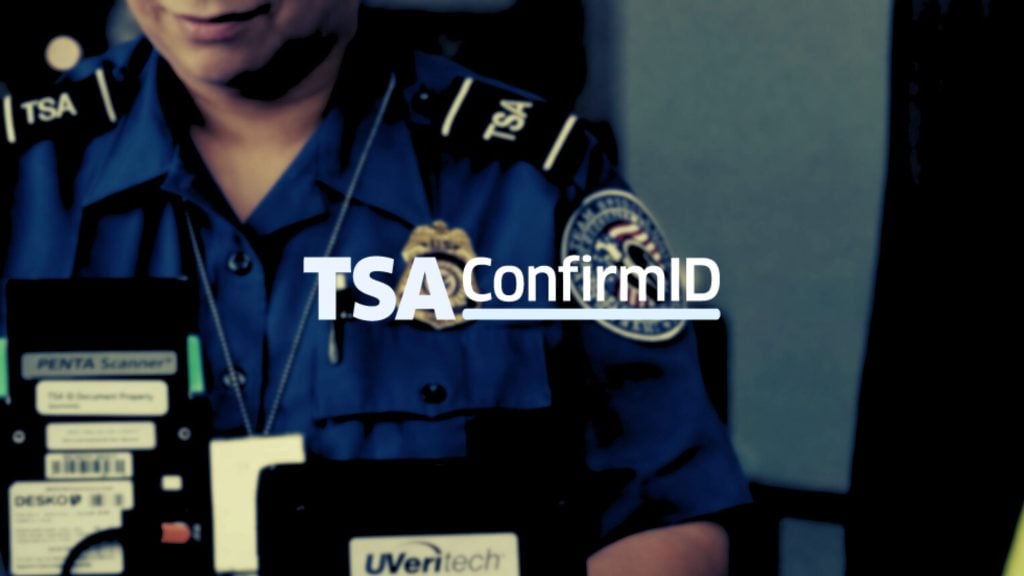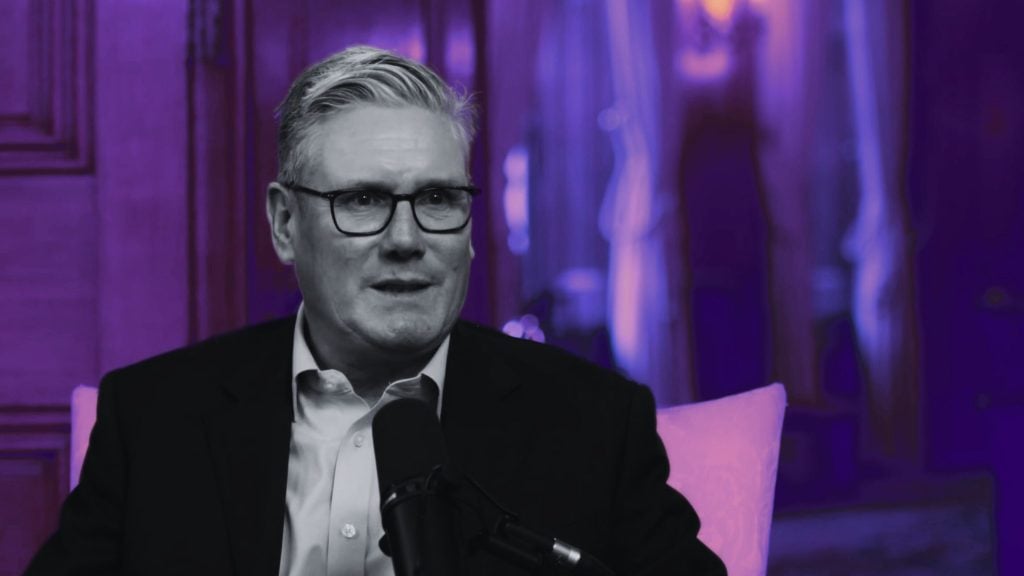Blake Lively has decided that the best way to respond to online gossip and criticism is with subpoenas, lots of them. With a move that suggests her legal team spent a weekend watching “Enemy of the State,” Lively is now targeting 36 content creators, from high-profile commentators to pseudonymous hobbyists, all over rumors she says were part of a smear effort.
Some of the targets have large followings. Others barely register on the algorithm. One runs a YouTube astrology channel with fewer than 300 subscribers at the time of the subpoena. All are now being asked to turn over a wide array of personal and financial data, as if they were co-conspirators in a criminal probe instead of people who post opinions from their bedrooms.
The case, Lively v. Wayfarer Studios LLC, is already a headache in itself, but this new front seems designed less to resolve the actual lawsuit and more to comb through the internet for anything unflattering.
We obtained a copy of the Google subpoena for you here.
We obtained a copy of the TikTok subpoena for you here.
We obtained a copy of the X subpoena for you here.
If you’re out of the loop, Blake Lively is suing Wayfarer Studios, its co-founder Justin Baldoni, and several others, alleging sexual harassment, workplace misconduct, breach of contract, and a coordinated retaliation campaign designed to destroy her reputation.
According to the complaint, Lively raised concerns about repeated inappropriate behavior by Baldoni and Wayfarer executives during production of It Ends With Us. After the film was completed, she claims Baldoni and his team launched a covert “social manipulation” campaign to discredit her using fake grassroots content, crisis PR firms, and anonymous online posts, which she describes as a well-funded digital smear effort.
The subpoenas may have made the headlines, but the criticism started long before that. Lively’s role in the troubled production had already drawn scrutiny throughout the summer of 2024.
She was perceived as unusually hands-on; from creative control to promotional appearances, and fans began to notice she was the only cast member consistently paired with Sony’s official PR push. The more rumors surfaced about alleged on-set tensions and unilateral decisions, the more social media lit up with speculation that Lively’s public image didn’t quite match the private power she was exercising.
Then came the media clips. A string of awkward, often tone-deaf promotional moments, like her now-infamous Q&A session where she glossed over the film’s themes of domestic violence, gave critics more ammunition. The backlash hardened quickly, with online commentators and gossip channels zeroing in on what they saw as Lively’s shifting narrative.
It was against this backdrop that Lively’s lawyers launched their subpoena spree. So by the time hobby YouTubers and anonymous X users started getting legal threats, the court of public opinion had already moved past doubt and into open hostility.
The subpoenas demand personal and financial data, including blockchain addresses, IP logs, emails, physical addresses, and phone numbers. Some of the people on the receiving end are high-profile; Candace Owens and Perez Hilton. Others are creators with barely enough viewership to earn YouTube ad money. “Astrology with Janessa” had under 300 subscribers at the time of the demand.
So why are they being dragged in? Lively’s lawyers seem to think Justin Baldoni may have secretly paid people or somehow got creators to post negative content about her. No one subpoenaed has admitted to this or even hinted that it’s true. But the legal team is still moving forward as if these creators are part of a coordinated campaign.
The subpoenas have sparked outrage among the targeted creators, who argue that Lively’s actions threaten independent journalism and free expression.
Andy Signore, host of the YouTube channel Popcorned Planet, didn’t hold back. “It’s shocking to be honest. Not because I have anything to hide, but because she thinks she can just bully and intimidate independent journalists. I won’t let her… my lawyers and I will be fighting all of it,” he told The Daily Mail.
Signore believes Lively’s team may be trying to unmask anonymous crew members he interviewed for his upcoming documentary, It Ends With Justice, which disputes Lively’s narrative. “I believe Blake and Ryan want those sources. I will not betray those sources,” he added.
Lauren Neidigh, a YouTuber with around 20,000 subscribers, was blindsided. “When I first got the email, I was so shocked,” she said. “Now we’ve determined this is real and not a scam, I intend to file my own motion to quash and fight her myself.”
Neidigh has posted in-depth coverage of the Lively-Baldoni lawsuit and rejected the idea that she was part of any paid operation. “I will not willingly allow a self-proclaimed advocate for women and girls’ safety to violate my privacy just because I do not believe her and am outspoken about that.”
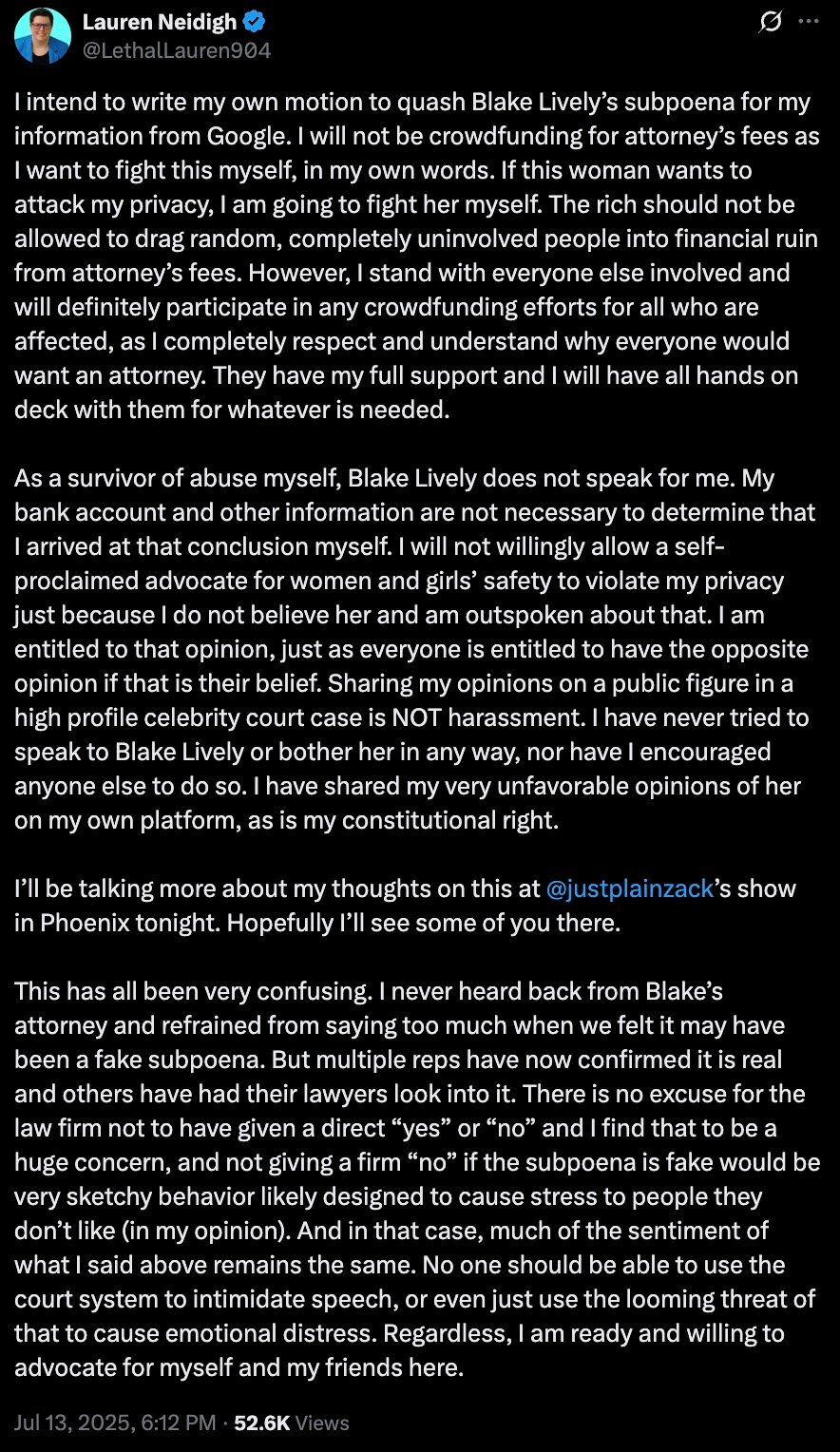
Journalist Kjersti Flaa also landed on the list, calling the subpoenas a “direct attack on my privacy, my sources, and my First Amendment rights.”
In a recent podcast, Flaa said she suspected the move came from Lively’s crisis PR handler, former Obama spokesman Nick Shapiro. “This kind of legal fishing expedition is not just invasive – it’s dangerous,” she said, pointing out the chilling implications for anyone covering public figures.
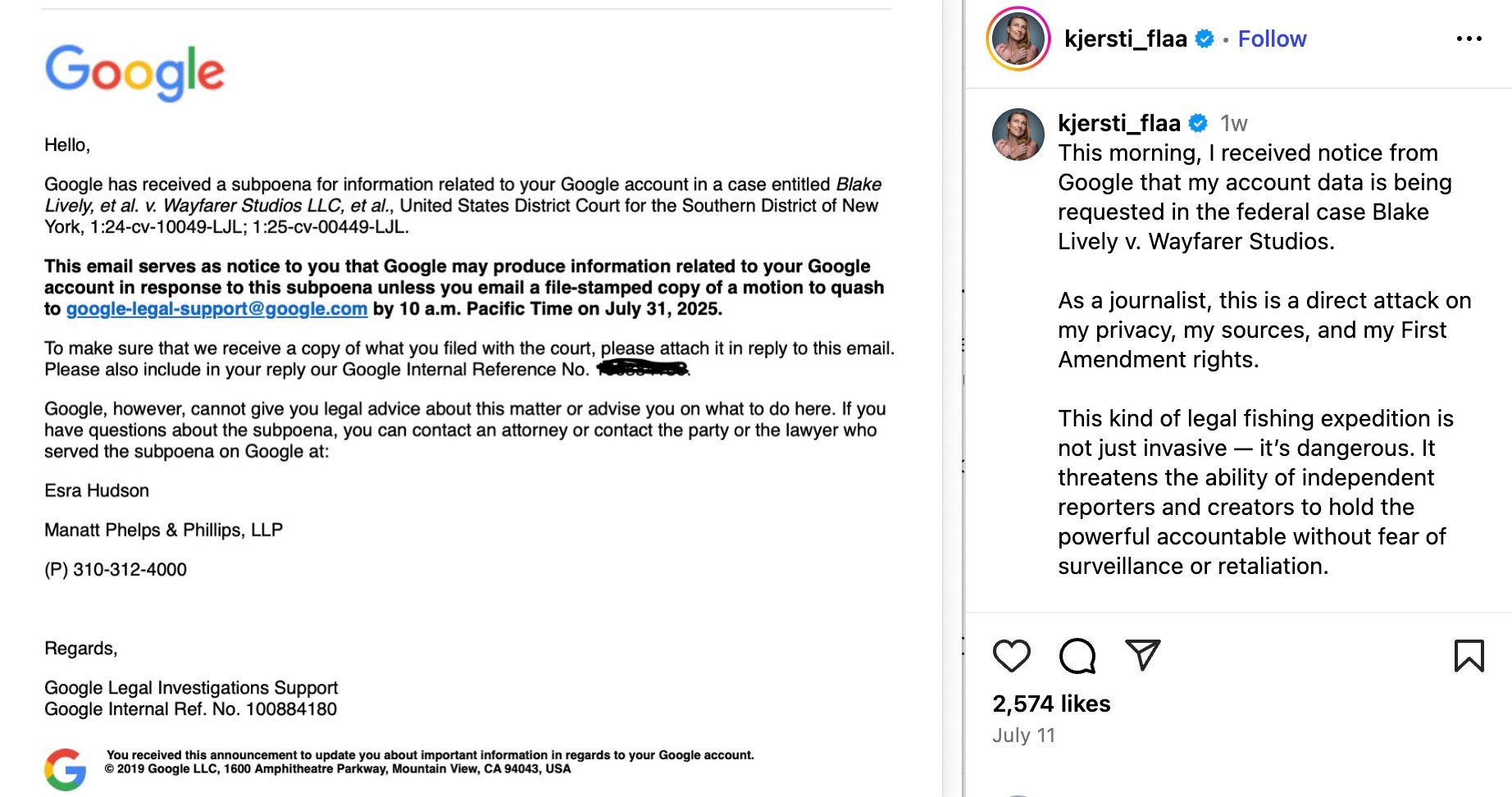
Candace Owens took a more theatrical approach, as expected. “I am, in a word, elated. I am, in another word, honored. It feels like a graduation ceremony of sorts for me and all of my podcast listeners,” she said.
Owens hadn’t been formally served and found out about the subpoena from the press. “How could us covering the lawsuit that has already been filed [mean we’re involved]? We have nothing to do with your lawsuit. It’s our right to cover pop culture.”
Perez Hilton, once the reigning king of Hollywood gossip, responded with less bravado. In a video to his followers, he said, “I take this very seriously. I have not been served a subpoena yet, but I will comply with the law, and I have nothing to hide.”
The lesser-known creators named in the subpoenas aren’t staying silent either. Ashley Briana Eve speculated in an Instagram Reel that Lively’s team was targeting smaller voices to quietly reassert “narrative control” now that the spotlight has shifted to major influencers.
Another creator, who posts under the name SophieUnusual, took it further: “Real and normal people’s lives are being impacted financially because of Blake Lively’s legal saga,” she wrote, accusing Lively of “punching down.”
For the people on the receiving end, the problem is more than the legal theory behind the subpoenas. It’s the cost. Most of them don’t have the money to hire a lawyer to fight this off, let alone protect their private data from being passed around in court documents. Many of these creators aren’t even full-time. They post commentary, opinions, or celebrity speculation; content that, until now, didn’t seem like it could provoke a subpoena.
The online reaction hasn’t been kind. What might have passed as a celebrity defending her name now looks like an intimidation campaign. People are asking why anonymous creators and low-traffic accounts are being pulled into this at all.
There’s no public evidence of coordinated defamation. There is, however, now a clear warning to anyone offering commentary: if a celebrity doesn’t like what you said, they might want your home address next.
If this was supposed to reassert control over a narrative, it’s doing the opposite. Lively’s team hasn’t proved any defamation conspiracy, but they’ve created the appearance of a celebrity using legal threats to sanitize public discourse.
It’s hard to imagine what they think they’ll find by going through a wellness influencer’s Venmo history or a gossip channel’s IP logs from months ago.
It’s left a trail of small creators caught in the middle, wondering how making posts about a celebrity landed them in legal crosshairs.

